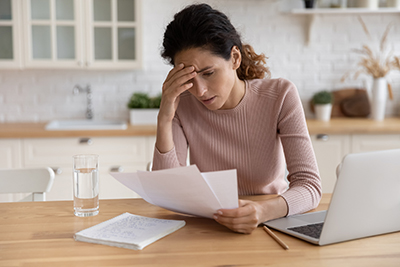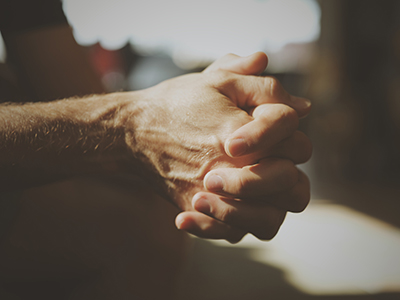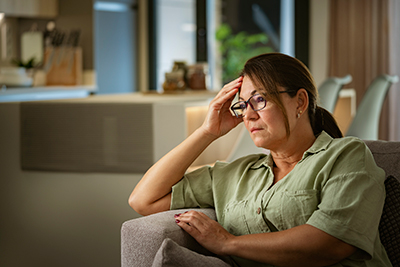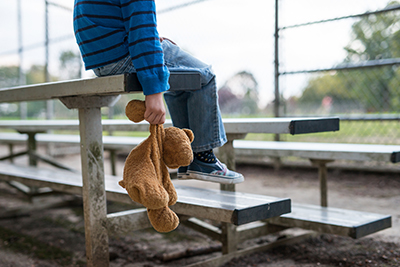INTRODUCTION
If you, your husband, wife, partner, best friend, child, mum, dad or anyone else you love is critically injured - what do you do? When someone is injured, the effect does not stop with that individual.
APIL has worked on behalf of injured people for 35 years, and we understand that the strain and worry can stretch to all areas of life, including the practical matters. As well as wanting to be there for your loved one, you might be worried about how your children are coping, or how the bills are going to be paid. You might be here because you are recovering from an injury yourself, and searching for support.
Our aim is to get injured people's lives back on track and get families through the tough times. The following information and links will help to steer you in the right direction.
FINANCE

I have no access to my partner's bank account and need it
Most banks have devoted teams in place to assist customers with unexpected events, such as bereavement, illness and incapacitating injuries. Some of them are here, but do not hesitate to call your bank for help.
Handling financial matters for someone is much easier if they have already established a lasting power of attorney (LPA) for such an event, or an ('enduring power of attorney' before 2007). Check whether this is the case. If you or other family members do not know, you can check with the official body:
How do we pay the mortgage or rent while my husband/wife/partner is not earning?
First, take a look through your paperwork. You may have mortgage payment protection insurance (MPPI) which covers your monthly repayments if you can no longer make them. You need to check that the policy covers injuries and illness, as some only offer redundancy cover. Typical policies will cover mortgage payments for up to two years and will pay up to £2,000 a month or around 65 per cent of your monthly income (whichever is lower). Find out more about MPPI from Which? here. There is also a short guide on Compare the Market.
Speak to your mortgage lender as soon as possible. Most mortgage providers have dedicated staff who help people in these circumstances. You might be able to arrange a 'payment holiday', or switch to interest-only repayments so you can have a break from paying off the loan itself, which can reduce the amount to pay each month drastically.
Other useful contacts
My injured friend has no family. How do I go about making medical or financial decisions for them?
First of all, you should apply to search the Office of the Public Guardian registers to check if your friend has an appointed person for such an event. If not, you can apply to a court to help someone without mental capacity with one-off or long-term decisions. The Court of Protection can help and can appoint decision-makers on an urgent basis if required. Click here for the contact details for each of the regions in England and Wales.
In Scotland you can apply for an intervention order. If you think you might need powers on an on-going basis then a guardianship order could be more appropriate. Find information about the differences and how to apply in Scotland here. In Northern Ireland, you will need to contact The Office of Care and Protection.
In any event, you should seek proper legal advice about gaining power to make decisions on someone else's behalf.
Other useful contacts
My husband, wife, or partner has passed away. What are my financial rights?
Partners who live together with separate bank accounts do not have the right to gain access to each other's money in those accounts. In the event that one partner passes away, the money will be given to whoever is named in the deceased person's will, or the closest relative if they have not made one. For unmarried people, this is often their parents.
If you have a joint account in both names, the surviving partner becomes entitled to the balance and can have access to the account.
Regardless of who paid into the account, married couples share ownership of their joint bank accounts. If one of them passes away, the whole account immediately becomes the property of the survivor. If each spouse in a married couple has an individual bank account and one of them dies, the bank may allow the surviving partner to withdraw the balance.
For Government help and advice on benefits, tax and pensions in England and Wales, click here. If you are in Scotland, click here. And for Northern Ireland, click here.
Other useful contacts
BRAIN INJURY AND SPINAL INJURY

My partner has severe brain damage
Once someone has lost mental capability because they are unconscious or have severe brain damage, for example, it is not possible to make a lasting power of attorney (LPA).
It is possible, however, to apply to the Court of Protection for a decision on a specific matter, such as one relating to what type of treatment to choose. But if there is an ongoing need to make decisions on someone's behalf, you need to ask the Court of Protection to assign you as the injured person's 'deputy'. Deputies can make decisions about someone's property, finances, and personal welfare. The process of becoming a deputy can take months, because the judge needs to be satisfied that a deputy is needed and that you are suitable for the role. You will be given a court order outlining what you can and cannot do. If the need for decisions is more urgent, there is a special application route you can take.
It is important to note that husbands and wives do not have automatic legal power for medical decisions, and neither does another next of kin, unless it relates to a child under the age of 18. For more information, see Managing affairs for someone else - Citizens Advice.
My loved one has a brain/spinal injury and I don't understand the medical language
St George's University Hospitals NHS Foundation Trust has a helpful document with a guide to the terminology and details of what can happen to someone with a brain injury.
Headway is a charity which supports people with acquired brain injuries (sometimes abbreviated to "ABI"). It offers, free, confidential, immediate support through their helpline on 0808 800 2244. Headway's website also has a very useful section on the effects of a brain injury, including for those in a coma and those who are technically conscious but whose awareness is reduced. It also explains the emotional impact - which is usually profound for the whole family - and the effect on the injured person's behaviour, ability to speak and understand, memory recall, and the physical effects of brain injury.
The Child Brain Injury Trust (CBIT) can help you with emotional and practical support, and information, specifically for families with children with acquired brain injuries. CBIT has broken down its available services by region to help you find support local to you.
If you are dealing with a spinal injury, you might hear all sorts of terminology about the severity. A guide to explain the different severities of spinal injury and what the terminology means is available from the Spinal Injuries Association.
Hands-on help with day-to-day life after a spinal cord injury is available from Aspire. The Aspire website has stories from real people who are paralysed, have lost use of their arms or their legs, or both.
The Back Up telephone support service is a valuable point of contact for anyone with a spinal cord injury and their loved ones. Back Up Connect, is a new service that connects you quickly, on a one-off basis, to someone who has also experienced a spinal cord injury and knows what you're going through. There is also help for people's loved ones and also for under 18s. The charity inspires and supports people affected by spinal cord injury to get the most out of life. Through its Back Up to Work courses and online resources it aims to increase the numbers of people returning to work after a spinal cord injury. Click here for contact details.
Other useful contacts
LEGAL ADVICE

Do I need legal advice about what happened?
Taking legal action over what has happened will be the last thing on your mind. But if it is clear that the injury was caused by someone else's negligence, then a lawyer may be able to secure an early payment of compensation, also known as an interim payment, until a final damages settlement is reached with those responsible. This is to help with money worries immediately after the injury as some claims, particularly those relating to severe injuries, can take years to settle.
You might be entitled to benefits to help you pay rent, such as housing benefit or universal credit. The cost of this will be taken into consideration if you make a legal claim for the injuries, and the Government will claim it back from those who are responsible for the injury. It is usually an insurance company who will pay. But in the meantime, you need to talk to your lawyer about whether an interim payment could be paid to you to help. Also see Turn2Us, a national anti-poverty charity which can help decipher the benefits, grants or other financial support available for people who are ill or injured.
I think my medical treatment was negligent/I've suffered harm as a patient and don't know what to do next
Sometimes the medical treatment we receive can go wrong. You may have been a patient in hospital for example, and you suspect the care you received was poor or negligent. If this happens, the NHS has a legal duty to abide by what is known as the 'duty of candour', which means healthcare staff are required to be open and honest about what went wrong.
If you have suffered harm or been made ill due to negligent care, you might also need redress to help you get your life back on track. To do this you should seek the help of a lawyer who specialises in clinical negligence and can deal with matters for you.
Lawyers who are members of the Association of Personal Injury Lawyers (APIL) and have achieved APIL specialist accreditation for clinical negligence claims are specialists in their field, having achieved a high standard of expertise and competence.
The Patient Advice and Liaison Service (PALS) is a free, confidential and independent service in most hospitals. You can speak with a PALS staff member, who will try to help you resolve issues informally with the hospital without the need to make a complaint.
Other useful contacts
CARERS
I'm struggling to cope as a carer
You can get help and support from the Government if you're responsible for looking after someone who has a disability or has become injured or ill. This can range from practical help to make day-to-day life easier to benefits like carer's allowance. Carers don't have to live under the same roof to be eligible. And there is no legal definition of the time spent caring in order to qualify as a carer. You will need what is called a carer's assessment which can be arranged through the local council's social services department. Find your local council here.
All this and further information is detailed on the Citizens Advice website.
Other useful contacts
How can I support an injured friend or relative emotionally?
It is likely that relationships will change after a brain injury, which can be very upsetting. Headway has information on how to cope with these changes and still support your loved one.
Headway also has guides for parents, partners, siblings, grandparents, friends, and colleagues, which also have guidance on how to take care of yourself during a traumatic time for a loved one.
Any injury can be challenging for any family. For children with brain injuries, the Children's Trust provides information and support for families. In particular, it provides support for siblings.
Other useful contacts
CHILDREN

Our baby may have cerebral palsy
It can be very difficult for a parent to process a diagnosis of cerebral palsy.
There are many organisations and charities which support people with cerebral palsy and other brain injuries which happen at birth. Scope has further information and can guide you to various services. It also has a helpline: 0808 800 3333.
Sometimes cerebral palsy is caused by a failure during the birth which restricted oxygen to the baby's brain. You can seek an accredited clinical negligence lawyer to help you investigate this if you have no answers, or think you may need financial support for your child.
There is some advice from Baby Centre on how to recover from a traumatic birth.
Other useful contacts
BEREAVEMENT
I'm worried about how my children are coping with a sudden death
No-one is prepared for the impact of grief, and there is no prescription for it. But kids might have a harder time than adults accepting that someone has gone, or communicating how they feel.
Winston's Wish provides emotional and practical bereavement support to children, young people and those who care for them. The charity offers immediate support through its helpline, which is open 8am to 8pm Monday to Friday. Call 08088 020 021.
"It is often better to tell children things through honest discussion and involve them in decision making rather than keep them in the dark and leave them excluded in an effort to protect them from the truth," says Brake, the road safety charity. Sudden, an initiative by Brake, offers help for children specifically. It would also be helpful for anyone suffering a loss which happened somewhere other than on the road. Visit the Sudden Death website.
Other useful contacts

My partner has died and I don't know what to do
Cruse Bereavement Care offers a range of free confidential support for adults and children. It includes support for bereaved people, military families, and also those bereaved in particularly traumatic circumstances such as natural disaster, terrorist attack, or suicide. There is also advice on how to support someone else who is suffering a bereavement.
A service, which can be of great help with the administrative tasks required of families when someone dies is the Death Notification Service. It notifies of a person's death to a number of banks, building societies, and other institutions at the same time. Life Ledger is another free service which can be used to inform more than 1,000 companies, including banks, insurers and pension providers, that someone has died.
There is also the Tell Us Once service, which lets you report a death to most government organisations in one go.
Being widowed at any time is tough, but being widowed when still youthful brings its own set of challenges. WAY Widowed and Young is a national charity for widowed people aged 50 and under. It's a peer-to-peer support group operating with a network of volunteers who have been bereaved at a young age themselves, so they understand exactly what other members are going through.
Two young widows challenge the expectations that society puts on those experiencing the death of a partner in The Widowhood podcast. You can listen here or search for it on Apple Podcasts, Spotify, Castbox, or Goodpods. Be aware that this podcast contains explicit language. There is also the Widowed AF podcast. In a series of honest and frank conversations, guests share their own experience of losing the person they love. You can expect to hear how they have navigated conflicting and confusing emotions, rebuilt lives and learned to coexist with trauma.
RoadPeace helps families bereaved through road collisions to cope and build resilience through peer support, local group networks, befriending services, and trauma support programmes. Also, the charity believes that all those bereaved through road crashes have the right to place a roadside memorial at the crash site or near to the crash site in remembrance of their loved one. See more about Roadpeace's Remember Me scheme here.
Other useful contacts
MENTAL HEALTH
Supporting my loved one is taking its toll on my mental health
Supporting someone with an injury can be difficult, you may even feel lost and alone. It is important to remember that you can get support too.
Charities like Mind can point you in the right direction. They offer advice on where to find support, living with mental health conditions, and how to help someone else. The Carers UK website has a section on looking after your own mental and physical health.
Cruse Bereavement Support can advise if you have been affected by a death.
Other useful contacts
I am traumatised by what has happened to me
Injuries are not only physical.
There are a wealth of support organisations and charities to help with trauma, in all manner of situations. Be assured that there will be others like you, and these organisations are experienced in helping people to get back on track. Making contact is the first step.
SupportLine provides a confidential helpline offering emotional support to any individual on any issue. SupportLine is open to any individual of any age. Calls are received from children, young adults and adults.
Combat Stress helps former servicemen and women deal with issues like post-traumatic stress disorder (PTSD) anxiety and depression.
Veterans With Dogs - trains and provides assistance dogs exclusively for current and former members of the British Armed Forces with service-related mental health conditions.
Other useful contacts
ABUSE
I was abused as a child
If you experienced abuse as a child, or are caring for a child who has experienced abuse, there are some resources which can help.

The NSPCC offers a variety of services, including support for adults looking after children who are abuse survivors, support groups for children, and local services which can help.
Often, it can be difficult to come to terms with having experienced abuse as a child. If you are an adult who has experienced abuse as a child, NAPAC can help. Their services include a support line, advice on dealing with the effects of abuse, and finding a support group near you.
Survivors can also claim compensation in some situations, to help atone for the impact abuse has had on their lives and to help them to rebuild their lives.
The Criminal Injuries Compensation Scheme (CICS) is available for people who may not want to pursue their abusers through the usual legal processes. However, everyone is different. We recommend seeking advice from an accredited lawyer who specialises in abuse cases, who can explain the options available, before you decide which is the best route for you.
Other useful contacts
Other charities which can offer information and support for specific injuries and needs include:
- RNIB - practical and emotional support to help people who have lost their sight and their families.
- The Limbless Association - for amputees and people born with limb difference. The website has a directory of local support groups.
- RFEA - is a forces employment charity and helps get ex-military personnel back into work after injury.
- Turn2Us - helps injured, ill and disabled people access potential financial support.
- Changing Faces - UK charity that helps individuals with a visible difference to their face, hands, or body.
- Amputation Foundation - charity provides support, empowerment, and resources to help people adapt to life after limb loss.
- NHS help for amputees
- Criminal Injuries Compensation Authority - pays compensation to people physically or mentally injured due to violent crime in England, Scotland or Wales, or in an act of terror abroad.
- Brake - road safety charity advice on treatment and recovery after serious injury.
- Help for heroes - helps veterans and their families.
- Spinal Injuries Association